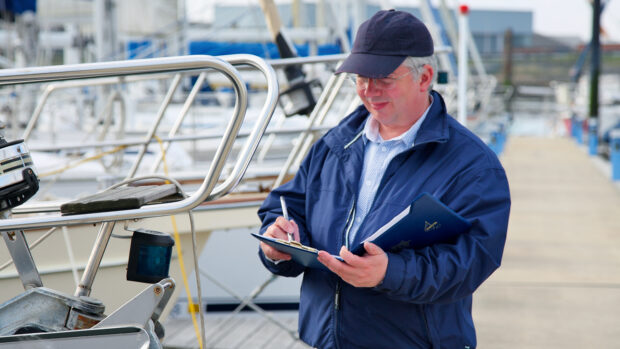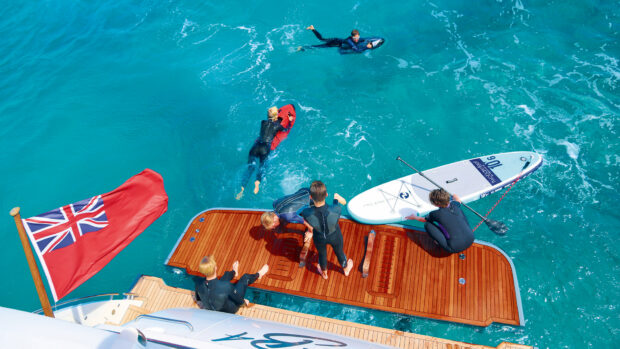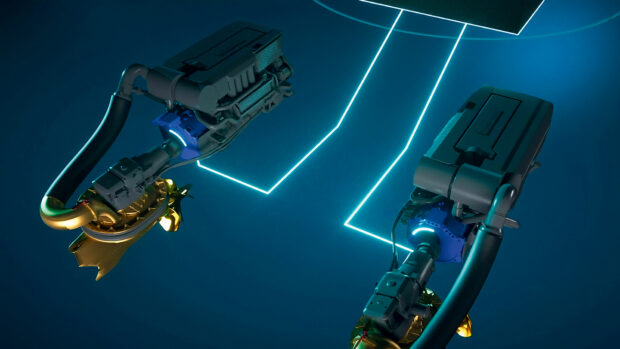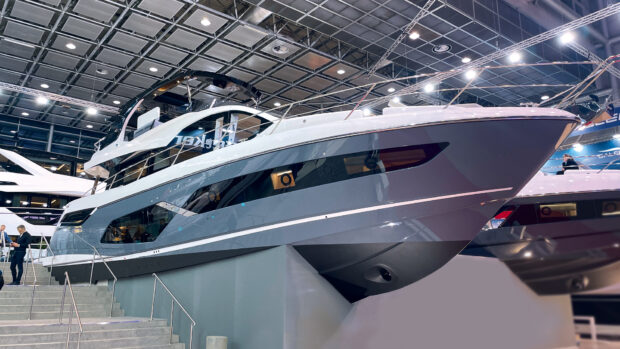The production-ready solar-powered Solarwave 64 powercat solves the limited-range conundrum of true electric boats
A little over a year ago we reported on the Solarwave 64 an ambitious project to bring an all-electric 62ft powercat to the market for the very first time.
The fruit of that electric boat project has now been unveiled, causing quite a sensation when it was launched to the press and public at the Multihull Boat Show in La Grande-Motte last month.
Slightly bigger than expected at 63ft 9in long and bearing the new brand name of its parent company Silent Yachts, the first production-ready Solarwave 64 is now for sale at an asking price of €1.96 million ex VAT.

The efficient, low-drag hull of the cat is ideal for solar applications
Even by conventional motor yacht standards, it’s an impressive-looking beast with a vast owner’s suite occupying the whole of the starboard hull and two further double ensuites on the port side (four and five-cabin versions are also an option). But it’s the way the whole boat has been designed and built from the ground up as a self-sufficient solar-powered cruiser that makes it so unusual.
Unlike the hybrid diesel-electric craft from the likes of Greenline and Mochi, which still rely on a sizeable diesel engine for any lengthy cruises, and the range-restricted battery-powered pure electric craft from Nimbus and Frauscher, the Solarwave 64 can cruise in near total silence for days at a time. So long as the sun keeps shining, there’s no theoretical limit on how far you can keep motoring.

A 25kW generator can be used to extend the range if the batteries run flat
The choice of a multi-hull design makes perfect sense. Not only is it an inherently efficient low-drag hull shape, but the large surface area of the pop-up hardtop and flybridge overhangs provide the perfect place to locate the solar panels.
On a sunny day, these can generate up to 15kW – more than enough to propel the boat at 5-6 knots and power all the yacht’s household appliances.
A huge amount of effort has also been put into keeping the weight down through the use of carbon-fibre composites and structural honeycomb-cored furniture. It hasn’t quite hit its initial target weight of 18 tonnes light but even at 25 tonnes, it’s a full 10 tonnes lighter than a Lagoon 630.









